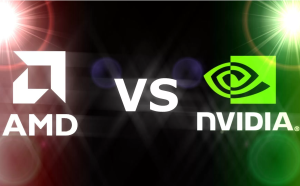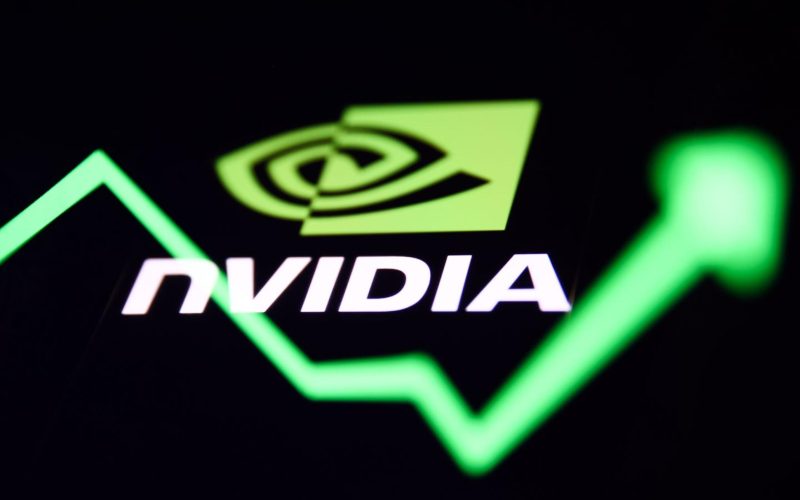Nvidia’s Stock Split and Price Target Boosts
On Monday, Nvidia’s (NVDA) commenced trading after its 10-for-1 stock split, which has sparked positive reactions from Wall Street analysts and investors alike. The stock experienced a notable rise following the event, with several analysts increasing their price targets for the graphics-chip leader.
Analyst Upgrades

Three prominent firms, Barclays, Susquehanna, and TD Cowen, have all raised their price targets for Nvidia, citing various growth opportunities and market stability.
Barclays Analyst Raises Price Target
Barclays analyst Tom O’Malley increased his price target for Nvidia stock from a split-adjusted $120 to $145, while reiterating his overweight (buy) rating. O’Malley highlighted the potential for significant incremental sales as sovereign nations begin purchasing Nvidia’s AI chips. He believes this market will accelerate substantially in the coming year.
Susquehanna’s Positive Outlook
Susquehanna Financial Group analyst Christopher Rolland also raised his price target from $120 to $145, maintaining a positive outlook on Nvidia shares. Rolland’s supply-chain checks suggest a smooth transition to Nvidia’s new B100 AI processors for data centers in the latter half of 2024, alleviating concerns about a possible dip in sales during the transition from the Hopper series GPUs to the next-generation Blackwell series GPUs. “Discussions and broad checks across the supply chain quell our fears and are now giving us confidence in a sustained and smooth transition,” Rolland noted in his client communication.
TD Cowen’s Optimistic Forecast
TD Cowen analyst Matthew Ramsay reaffirmed his buy rating for Nvidia and raised his price target to $140 from $120. Ramsay reiterated his confidence in Nvidia’s leadership in accelerated computing, emphasizing the company’s dominant position in the industry.
Market Performance
On the day of trading, Nvidia’s stock saw a rise of 0.8%, closing at $121.79. The positive reception from analysts and the market suggests strong confidence in Nvidia’s future performance.
Magnificent Seven Stocks: Amazon Pulls Back

Amazon.com (AMZN) remains sharply out of buy range above a cup base’s 145.86 buy point. Amazon fell 1% Tuesday, still above the key 50-day line.
In recent weeks, the e-commerce giant reported first-quarter earnings and sales that exceeded expectations, helped by strong growth for its cloud-computing and advertising businesses.
Through its Amazon Bedrock platform, the e-commerce and cloud giant provides a fully managed service offering a choice of high-performing foundation models (FMs) from leading AI companies like AI21 Labs, Anthropic, Cohere, Meta and Stability AI.
AMD Stock Downgraded
In contrast, Nvidia’s competitor Advanced Micro Devices (AMD) faced a setback on Monday. Morgan Stanley analyst Joseph Moore downgraded AMD’s stock rating from overweight to equal weight, while keeping the price target unchanged at $176. This downgrade led to a 4.5% drop in AMD’s stock, closing at $160.34. Moore expressed concerns over investor expectations for AMD’s AI business, indicating that they might be overly optimistic. “We see limited upward revision potential for AI from here,” Moore commented.
Nvidia’s Strong Position in the Market
Nvidia’s strong market position is further underscored by its inclusion in several key investment lists. Nvidia is featured on IBD’s Leaderboard, and it holds spots on the IBD 50, Big Cap 20, Sector Leaders, and Tech Leaders lists. Additionally, Nvidia is recognized as one of the Magnificent Seven stocks, highlighting its prominence and attractiveness to investors.
Conclusion
The recent 10-for-1 stock split and subsequent analyst price target hikes have bolstered Nvidia’s market performance and investor confidence. While AMD faces challenges with investor expectations, Nvidia continues to solidify its leadership in the AI and graphics processing industry, making it a standout stock in the technology sector. Nvidia’s smooth transition to new AI processors further boosts confidence, while rival AMD faces a downgrade from Morgan Stanley












